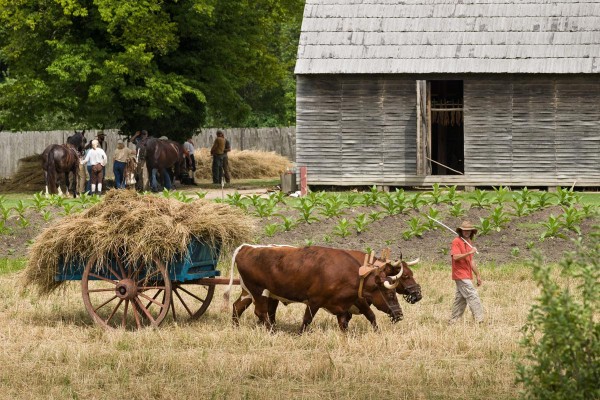 “Look at that. Isn’t that neat?” said Ed Schultz as he gestured toward two people driving Duke the ox as he pulled a plow under an intense late-morning sun.
“Look at that. Isn’t that neat?” said Ed Schultz as he gestured toward two people driving Duke the ox as he pulled a plow under an intense late-morning sun.
He was delighted because two participants in the Farming Boot Camp at Great Hopes plantation were entrusted to cultivate the corn field without direct supervision.
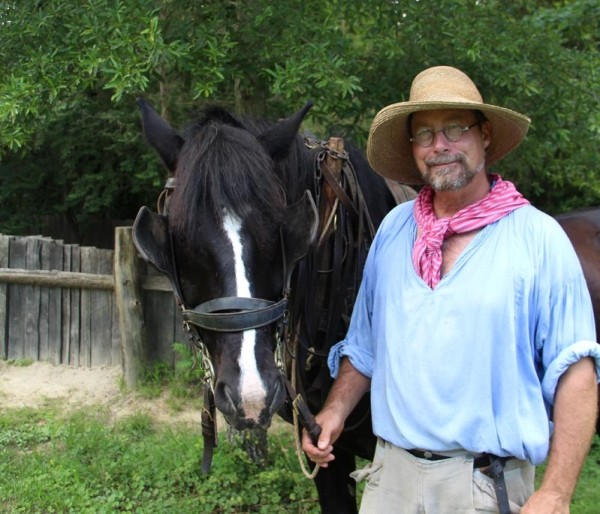 The boot camp was a pre-conference workshop affiliated with the annual meeting of the Association for Living History, Farm and Agricultural Museums (ALHFAM) being held this year in Williamsburg.
The boot camp was a pre-conference workshop affiliated with the annual meeting of the Association for Living History, Farm and Agricultural Museums (ALHFAM) being held this year in Williamsburg.
The two-day program gave the 20 participants valuable training in traditional farming techniques. They hailed from as far away as Scotland, Iceland, and western Canada. And the temporary labor force arrived at just the right time as far as Schultz was concerned.
“We planted the tobacco late and the worms came early,” he explained. “Then it rained a lot and the field was too muddy to hoe. Meanwhile the wheat was drying out and needed to be cut right away.”
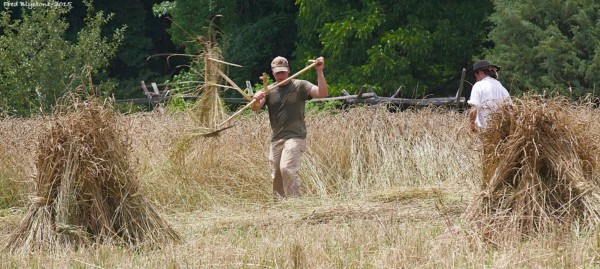 The result was a crush of work needing to be done. But to Schultz, it’s an object lesson in real-life farming.
The result was a crush of work needing to be done. But to Schultz, it’s an object lesson in real-life farming.
“This is real work, not a demonstration,” says Schultz. “So the decisions we’re making are real. Farming is a balancing act. What needs to be done first?”
Fortunately, the boot camp’s participants were a highly motivated bunch. In addition to cultivating the corn field—that’s removing the stray grass and weeds—they learned how to harvest wheat, hand-hoe and worm tobacco. They also gained experience in horsemanship, oxmanship and woodworking.
The focus remained on doing real work. There was joking around at the beginning, but soon enough everyone, including the 18 instructors, got to work. After gaining some experience in different tasks, the participants gained confidence, and their instructors allowed them to choose the work that most interested them.
Everyone had the opportunity to take part in Sunday’s plowing contest.
Shultz believes there is an appetite for Americans weighed down with technology to experience the real work—“the sweaty, gritty reality”—of historic farming.
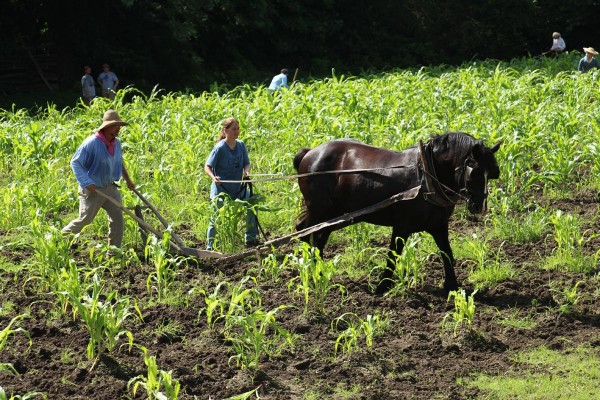 Everyone wants to know who they would be if they lived in an earlier time. What kind of work would they do? What would their community look like?
Everyone wants to know who they would be if they lived in an earlier time. What kind of work would they do? What would their community look like?
And the farm is a crucial part of American history. “This is how fortunes were made. This is how people lived,” he says. It’s also a connection to our ancestors.
“All you have to do to hit the farmer,” says Schultz, “is start saying great: great grandpa, great-great grandpa. Somewhere along the line we all find a farmer. It’s in our genetics.”
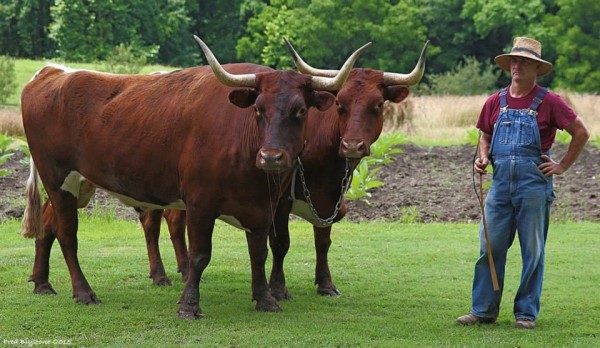 There’s a saying that goes way back: “tobacco first.” Tobacco historically was a high-value, high-maintenance crop that made and lost many Virginia fortunes. “The worms can destroy it in a couple of days,” says Schultz.
There’s a saying that goes way back: “tobacco first.” Tobacco historically was a high-value, high-maintenance crop that made and lost many Virginia fortunes. “The worms can destroy it in a couple of days,” says Schultz.
But for Colonial Williamsburg “our first crop is the guests.”
So come out to Great Hopes plantation and see what they’re up to, but remember: this is real work, not a demonstration. So watch, learn and be ready to chip in if somebody asks you to lend a hand!
New Blogger: Bill Sullivan
We’d like to welcome Bill to the Making History team. Bill dragged his family to Williamsburg back in 2003 so he could study early American history at William & Mary. Bill’s passion, aside from Cleveland sports, is for spreading the word about the significance of Williamsburg’s importance and the founding era.
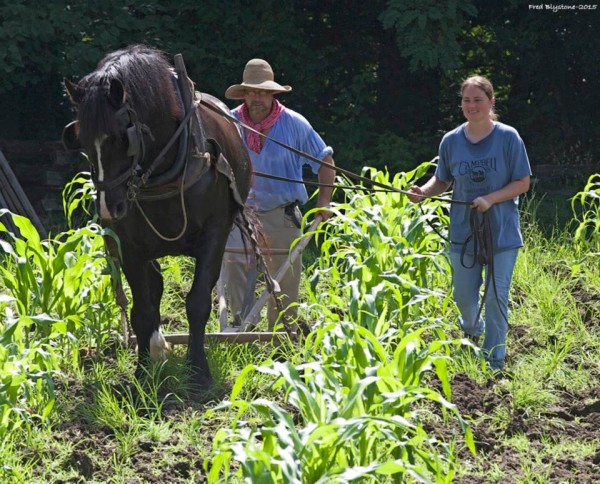
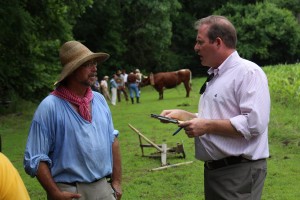
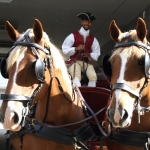
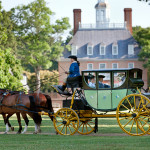
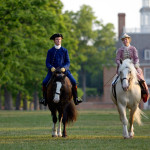
Ted Green says
Great story Bill on the ALHFAM’ers…I appreciate you covering the story.
Ed is a great guy and he was excited to see what these folks would do. My sister lived on a farm and my brother in law and nephews still farm their ancestors land in southeastern Ohio. It is hard work but it sure builds good character…something we need more of in these turbulent times.
WIlliam and Mary was a great venue for the international Conference as well as CW.
Had no idea you were a Cleveland sports fan though!
This was a great opportunity for “city folks” to really learn about the hard labor of dealing with plants and animals. I was raised on a farm in the South; therefore, I know exactly what farming life/work entails. I am a city dweller now and the family farm was sold in 2002, but I will always respect farmers!! I loved seeing the photos and loved the beautiful oxen and horses. Keep up the great programs and blogs! Thank you!
Thanks for reading and commenting. I’m more of a city guy myself, but Ed, like so many people here, was so passionate and eloquent about what he does that I can’t wait to get back to Great Hopes for another visit.